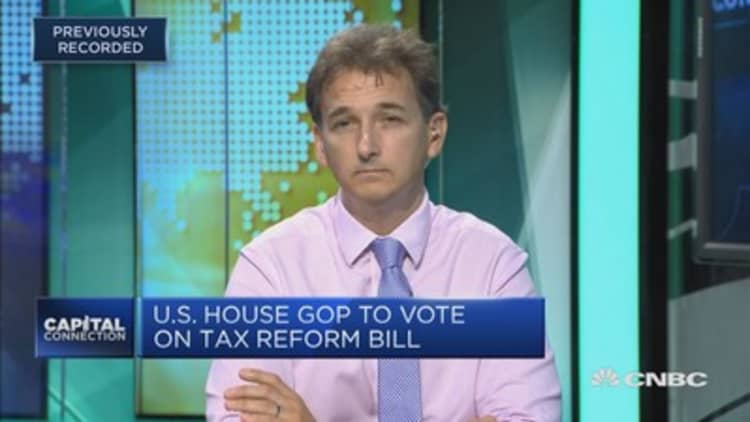The U.S. economy faces higher deficits, reduced government benefits and near-zero interest rates unless policymakers act aggressively, Cleveland Fed President Loretta Mester said Thursday.
In a speech to the Cato Institute in Washington, Mester painted a bleak picture driven in part by an aging population and lower productivity. Rising Social Security and health costs already are projected to carve a bigger hole in the federal budget, pushing the deficit to an unacceptable level.
One suggestion she has to accelerate growth and address declining productivity is immigration. Her remarks took direct aim at a priority of the Trump administration to curtail the inflow of foreigners, particularly from countries with large Muslim populations.
"Policies that increase the growth and productivity of the workforce would address not only fiscal imbalances but the downward pressure on longer-run growth from demographics or other sources," she said. "Policies that increase immigration, not reduce it, that support continuing education, that encourage R&D and innovation, and that provide incentives so people work longer should receive attention."
Mester is one of the more hawkish members of the Fed, pushing harder for rate hikes at a central bank that has been slow to come off the cheap-money policies implemented since the fiscal crisis.
However, she pointed out that policymakers have acknowledged that they overestimated what the long-term "neutral" rate would be, or the level that is neither overly stimulative nor restrictive to growth.
In fact, she said that if Congress doesn't take more action to control benefit costs, the days of zero interest rates and money-printing will return.
"In a world where counter-cyclical fiscal policy is constrained, business cycle volatility could rise, and monetary policy could find itself near the zero lower bound more often, potentially requiring the use of nontraditional policy tools such as asset purchases and forward guidance in order to meet monetary policymakers' economic objectives," she said.
In addition to the low rates, the Fed ballooned its balance sheet to $4.5 trillion through the purchase of government debt and mortgage-backed securities, in an effort to drive down lending rates and boost asset prices like stocks and corporate bonds.
The Fed has long sought help from fiscal policy to complement its monetary moves.
"If financing the funding shortfall through increased government borrowing is undesirable, raising taxes and reducing benefits or other expenditures are not very appealing either," Mester said. "Depending on how such policies are implemented, they could ultimately hurt the economy's longer-run growth prospects, leaving the fiscal outlook even worse."
Mester will be a voting member of the policymaking Federal Open Market Committee next year, when the central bank also gets new members to fill the three vacancies on the board of governors.
WATCH: How the Republican tax reform bill could affect the Fed.



